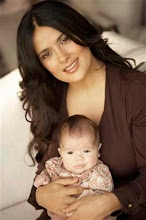 New Year's Eve Ball, 1978, New York Times
New Year's Eve Ball, 1978, New York TimesIt's New Year's Eve, and the world is alive with enthusiastic revelers and booming fireworks. I love New Year's Eve because of the energy and the hope it brings.
But one of the things I don't like about bringing in the new year is all the focus on resolutions and losing weight. It's almost impossible to think about new year's resolutions without thinking about how happy or unhappy we are with our bodies, and I feel like at this time of year, we focus more on our flaws—specifically what we want to improve—rather than our assets, and honestly, that breaks my heart.
For years, I have made numerous resolutions about my weight and my body. I even made resolutions on my birthday some years.
When I was looking through some old memorabilia recently, I found a list of resolutions from my 25th birthday, one of which was my resolution to get to 140 pounds.
140 pounds!!
What kind of crack was I smoking?!
I weighed 150 at the time and really hadn't weighed less than that since high school, so why did I think I had any chance of getting below that number? And, more importantly, why on Earth wasn't I happy at 150 pounds?!!!!
That's 40 whole pounds less than I weigh now. I can't even imagine weighing 150 pounds now. Nor can I imagine what I would do to weigh that little. I'd probably sell my soul to the devil to have my old body back. So why oh why couldn't I appreciate it when I had it?
I think the answer is simple: because we live in a society that teaches us that we always have to be thinner or better or smarter or happier. It's never enough to be just who we are now. I'm not saying I'm opposed to self-improvement, but I don't think it can be achieved until self-appreciation is also achieved, which is almost impossible if we're always focusing on what's wrong with us and resolving to change.
So rather than make a list of resolutions I won't keep and that will make me feel bad for weeks to come, I'm going to resolve this year not to make any more resolutions. To be happy with what I have and what I am. Right here and right now.
I hope that all of you can do the same, and I wish you all a very happy new year—see you on the other side!
































